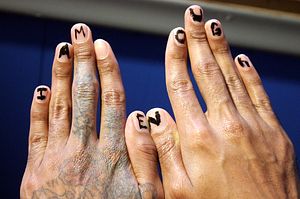As March 2017 wound to an end, mental health became an important topic of discussion for Indian ministers, beginning with the passage of the Mental Healthcare Bill 2016 and culminating in Prime Minister Narendra Modi’s monthly ‘Mann ki Baat’ address to the nation, which touched upon the issue of depression. Prime Minister Narendra Modi, while speaking of the need for a healthy lifestyle, suggested that a psychologically conducive environment is required to combat depression, which he characterized as not commonly understood and definitely not incurable.
He went onto say that expressing one’s struggle instead of suppressing it was an important first step to take, as depression could be the root cause of other ailments – both physical and mental. He urged individuals to support friends and family who display depressive tendencies and also encouraged those suffering from depression to try and subsume the same in service of others. He concluded this topic by speaking of yoga as an important avenue towards a happy state of mind, thereby steering the discussion towards Yoga Day in June 2017.
This is important context also to the Mental Healthcare Bill, which attempts to provide healthcare services for those diagnosed with mental illnesses and protect them from discrimination, allowing them to lead a dignified existence. The biggest aspect of this Bill that has caught the eye of Indian media is that it decriminalizes suicide with an aim to rehabilitate rather than penalize individuals who attempt it, thereby preventing recurrence.
The Bill further outlines the rights of persons with mental illnesses, including confidentiality, the right to fair treatment, right to equal access to treatment, which would include free treatment for those below the poverty line, and the right to seek redress in the case of treatment deficiencies. It also outlines the process of admission, treatment, and discharge of persons with mental disabilities at care facilities and hospitals. It criminalizes inhuman treatment of mental health patients and prohibits unsupervised implementation of electroconvulsive therapy. In terms of institutions for redress, a Mental Health Review Board is to be constituted and a Central Mental Health Authority, along with State Mental Health Authorities, will be set up to maintain registries, supervise the provision of care, and cater to a grievance mechanism.
The Advanced Directive aspect of the Bill is built to empower individuals to determine their form of treatment in advance and also to identify a representative who can ensure that these directives are followed. There has been some debate about the extent to which such a move really empowers the patient as some forms of mental illness may not allow the person afflicted to be in a position where they can rationally make a decision once diagnosed. The criticism levied therefore is that the bill does not adequately take into account the spectrum of mental illnesses.
On balance, however, the bill has been lauded across the board and Modi’s decision to directly talk about mental health has elicited praise. For the bill to be properly rolled out, the institutional infrastructure outlined within it must collude to implement it in the best possible manner. Those in power must take regular steps to break the taboo surrounding mental illness and create an atmosphere of awareness, where those suffering from mental afflictions are empowered enough to make use of the provisions of a landmark bill.

































